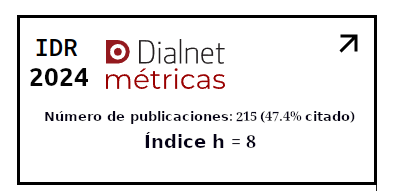Verdad y Sinnlichkeit en los Fragmentos de un discurso amoroso
Palabras clave:
Afectividad; Amor; Discurso; FilosofíaResumen
El propósito del artículo es explorar el problema del amor en la filosofía de Roland Barthes, a partir de su texto de 1977, Fragmentos de un discurso amoroso, y discutir en él las nociones de verdad y Sinnlichkeit. Se postula que esta filosofía del amor encubierta en los Fragmentos, daría el tiro de gracia a aquel Eros atrapado en esa separación entre alma y destino, páthos y razón, propia de la dialéctica, pero al mismo tiempo, representaría en cierto modo la poiesis de una tragedia, en especial –y este sería el primer criterio de análisis- teniendo en cuenta lo planteado por Lacoue-Labarthe acerca de lo trágico en Hölderlin. Conjeturando que los Fragmentos encubren una posible Sinnlichkeit, sobre todo bajo la idea de un otro ausente, se pone acento –y este es el segundo criterio- en el movimiento de canje ontológico desde una Leiblichkeit hacia una Leibhaftigkeit, como único residuo de esta filosofía de la Sinnlichkeit.
Referencias
Ainbinder, B. (ed.) (2011). Studia Heideggeriana. Buenos Aires, Argentina: Teseo.
Barthes, R. (1953). El grado cero de la escritura. Turulero.
Barthes, R. (1972). Crítica y verdad. Buenos Aires, Argentina: Siglo XXI.
Barthes, R. (1978). Roland Barthes por Roland Barthes. Barcelona: Kairós.
Barthes, R. (2002). Fragmentos de un discurso amoroso. Buenos Aires, Argentina: Siglo XXI.
Campanella, M. (2012). El pathos barthesiano. Exlibris, (1), 157-171. Recuperado de https://tinyurl.com/sjjbgj6
Culler, J. (2014). Barthes. México D.F.: FCE.
Durán, C. (2010). Philippe Lacoue-Labarthe: Una figura del pensamiento. Recuperado de https://tinyurl.com/yyou5nhl
Gil, J. (2016). Recepción y crítica del pensamiento filosófico de Ludwig Feuerbach. Kriterion, (134), 505-524. http://dx.doi.org/10.1590/0100-512x2016n13408jgm.
Ingenieros, J. (1956). Tratado del amor. Buenos Aires, Argentina: Perlado.
Kobau, P. (1999). Justificar la estética, justificar la estetización. En Gianni Vattimo (comp.), Filosofía y poesía: dos aproximaciones a la verdad (pp. 75-107). Barcelona: Gedisa.
Lacoue-Labarthe, P. (1978). La cesura de lo especulativo. Derrida en castellano. Recuperado de https://tinyurl.com/y67mj8sv
Larios, F. J. (2016). El erotismo en la obra de Georges Bataille: Una perversión positiva. Ciencia Nicolaita, (69), 22-35. Recuperado de https://tinyurl.com/vnjasng
Milner, J. C. (2003). El paso filosófico de Roland Barthes. Madrid: Amorrortu.
Richir, M. (2012). Leiblichkeit y Phantasia. Investigaciones Fenomenológicas, (9), 349-365. Recuperado de https://tinyurl.com/y8vrx5h8
Samoyault, T. (2015). Las lenguas extranjeras de Roland Barthes. Aportes de la Comunicación y la Cultura, (16), 47-54. Recuperado de https://tinyurl.com/romhkpf
Soentgen, J. (2016). Subjetividad del cuerpo: La obra de Hermann Schmitz. Ciencia y cultura, (36), 215-228. Recuperado de https://tinyurl.com/rvhd3p2
Verano, L. (2012). El lugar del otro: el problema de la alteridad en la filosofía de Merleau-Ponty. Universitas Philosophica, (58), 251-275. Recuperado de https://tinyurl.com/ydfaj96o
Verano, L. (2017). El ser corporal: Dasein y lenguaje en el pensamiento de Martin Heidegger. Convivium (29/30), 185-202. Recuperado de https://tinyurl.com/u7b6cqq
Publicado
Número
Sección
Licencia
Derechos de autor 2020 ACADEMO Revista de Investigación en Ciencias Sociales y Humanidades

Esta obra está bajo una licencia internacional Creative Commons Atribución 4.0.










